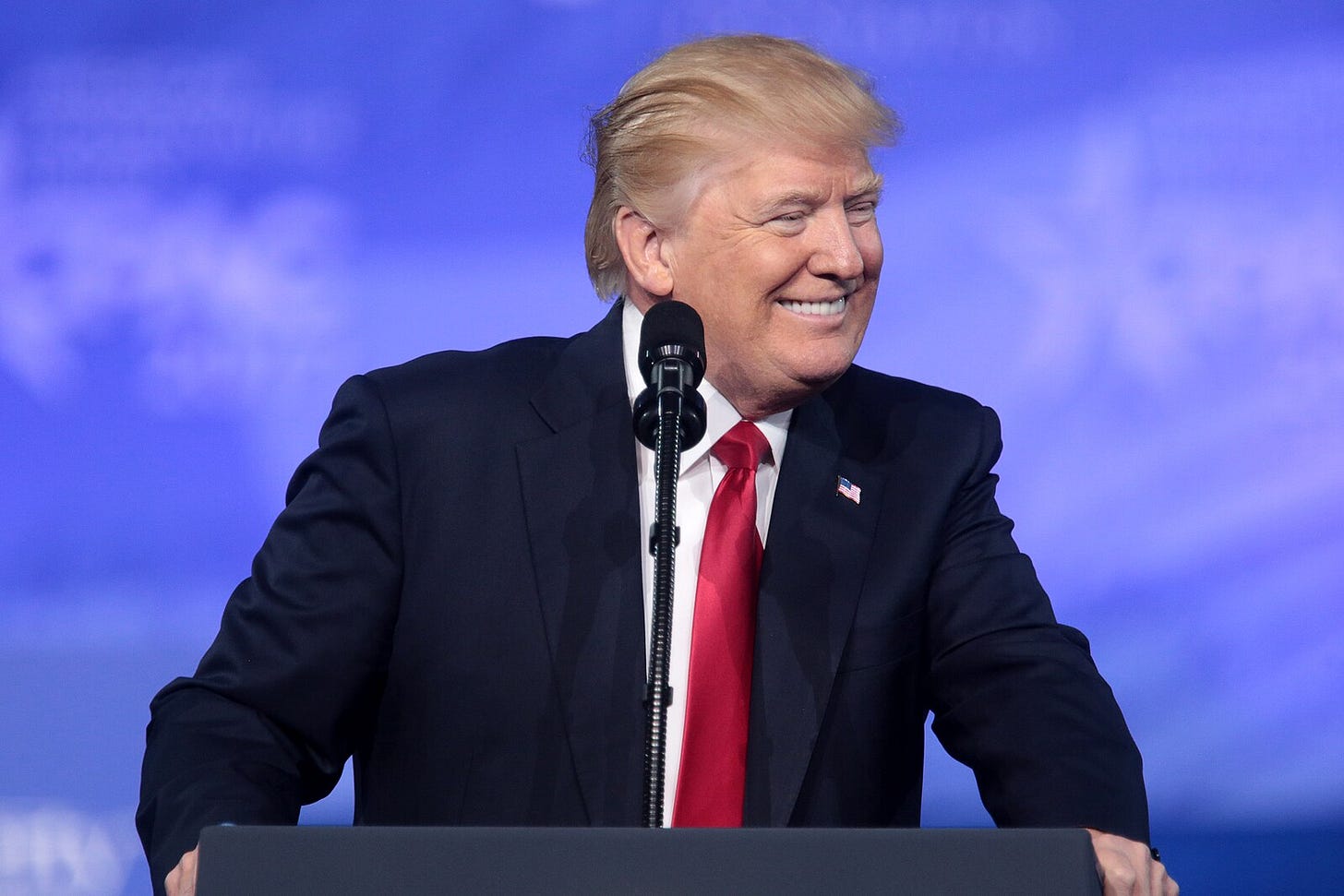Trump admin continues deporting Asian nationals to Africa
The Trump administration sent 10 individuals to Eswatini last week, including three Vietnamese, one Filipino, one Cambodian and five others, in the second round of controversial third-country removals
The Rebel Yellow - Issue #132
The Trump administration’s deportation program has entered a new phase, sending Vietnamese, Filipino, and Cambodian nationals to Africa under opaque third-country agreements that have alarmed human rights advocates. The removals come as the administration accelerates immigration crackdowns and reviews millions of visas, disproportionately affecting Asian communities. At the same time, Asian Americans continue to navigate the fault lines of race and representation — from Vivek Ramaswamy confronting Hinduphobic attacks on the campaign trail to actress Leah Lewis speaking out after a sexual assault report shook her CBS series. Together, these stories reveal how questions of identity, belonging and power are being tested across politics, policy and culture.
Trump admin continues deporting Asian nationals to Africa

The Trump administration sent 10 individuals to Eswatini last week, including three Vietnamese, one Filipino, one Cambodian and five others, in the second round of controversial third-country removals to the African nation.
State of play: Eswatini has now received 15 deportees in total since the program began in July with five arrivals from Vietnam, Laos, Yemen, Jamaica and Cuba. The deportations are part of a broader effort that has transferred over 40 individuals to at least five African countries, including Eswatini, Ghana, Rwanda, South Sudan and Uganda, under agreements that remain largely confidential. In July, eight people deported to South Sudan included Vietnamese, Laotian and Burmese individuals convicted of serious offenses despite having no ties to the country.
Since taking office, the Trump administration has overseen the removal of 400,000 immigrants and the voluntary departure of 1.6 million others in 250 days. However, federal statistics reveal that 65% of approximately 204,000 people arrested from October 2024 through June 2025 had no criminal history. Defending the latest move, White House spokesperson Abigail Jackson said the deportees were guilty of “heinous crimes,” including murder and rape.
Incommunicado: U.S.-based immigration attorney Tin Thanh Nguyen, who represents four deportees in Eswatini, has been unable to reach his clients since their arrival. “I cannot call them. I cannot email them. I cannot communicate through local counsel because the Eswatini government blocks all attorney access,” Nguyen said in a statement. With assistance from rights organization Human Rights First, he tracked the flight from Alexandria, Louisiana, through stops in Puerto Rico, Senegal and Angola, but cannot speak with the two clients who arrived Oct. 6 or the two sent earlier. Meanwhile, a local Eswatini attorney secured a court order on Oct. 3 permitting him to visit the earlier deportees, but authorities appealed quickly, preventing access.
Why third countries: The Immigration and Nationality Act permits third-country deportation when sending someone to their home country proves “impracticable, inadvisable or impossible,” though the current use represents an unprecedented scale. Officials argue the approach is necessary because certain countries refuse to accept their own citizens, though evidence shows third countries have sometimes successfully returned migrants home despite such claims. For now, courts are examining whether these removals comply with legal protections.
In April, U.S. District Judge Brian Murphy ruled the administration violated constitutional due process by not providing migrants a “meaningful opportunity” to challenge removal under the UN Convention against Torture. Despite Murphy’s ruling, the Supreme Court allowed deportations to proceed in June during ongoing litigation.
What’s next: U.S. officials have reportedly contacted at least 58 countries about receiving deportees, leveraging threats including travel bans, tariff adjustments and diplomatic restrictions. Documents reviewed by Human Rights Watch indicate Washington agreed to pay Eswatini $5.1 million for accepting up to 160 deportees, while El Salvador received approximately $6 million to detain 238 alleged Venezuelan gang members for one year. Beyond Africa, the administration’s review of 55 million visa holders has particular implications for Asian communities, as 13 million Asian immigrants constitute the majority of temporary visa holders facing scrutiny.
The Supreme Court’s June decision could pave the way for additional deportations to third countries while legal challenges continue.
Steven Cheung: Nobel Committee chose “politics over peace” with Trump snub
White House Communications Director Steven Cheung accused the Norwegian Nobel Committee of putting “politics over peace” early Friday after it awarded the 2025 Nobel Peace Prize to Venezuelan opposition leader María Corina Machado. The committee said Machado was honored for her “courageous fight for democracy and peaceful transition in Venezuela.” In a social media post, Cheung argued that President Donald Trump’s record in mediating peace deals, including the Abraham Accords, had been disregarded.


